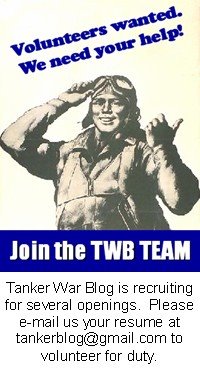
EADS North America, as an American headquartered and owned subsidiary, has always been able to legally distance itself from its parent's ethics issues and criminal investigations. But the ongoing investigation into EADS insider trading may bring this immunity to an end.
The New York Times reports that an 18-page document which details the French stock market regulator’s insider-trading accusations against executives at Airbus and its parent, the European Aeronautic Defense and Space Company accuses,
"more than a dozen executives of Airbus and the parent company, commonly referred to as EADS, of having known as early as June 2005 that profit was likely to decline, largely as a result of development costs and production delays at Airbus.
The executives were also aware of the likelihood of significant delays in the introduction of at least two planes, the two-deck A380 superjumbo jet and the midsize A350, before they exercised stock options in March 2006, the document said, a couple of months before the information became public and sent the share price tumbling.
The accusations form the core of the French regulator’s case against 17 people who, the document said, made a total of 20 million euros (now $31.44 million) while having access to insider information."
Ralph Crosby, the head of EADS North America, is reported to be listed as one of the executives under investigation.
Last December in an effort to turn the page on a number of recent high-profile procurement scandals, federal officials mandated tougher ethical standards for government contractors.
As GovernmentExecutive.com reported,
The change, published Nov. 23 in the Federal Register, mandates that companies set up a written code of business ethics and conduct, initiate an ethics compliance training program, and institute an internal control system. Subcontractors must submit to their prime contractor documents attesting to their ethical policies.
We at Tanker War Blog hope that Mr. Crosby attended his ethics compliance class and that he did not rip off EADS shareholders by selling his stock before the full extent of EADS's troubles were publicly revealed. If not, he may have an unexpected visit by the Justice Department and the Air Force may find it harder to explain how it is allowing EADS North America to participate in the tanker contract.




 Stumble It!
Stumble It!
4 comments:
I have also read that the Air Force's evaluation disclosed the the KC-767 was more survivable than the European Airbus in wartime. Yet, the Air Force selected the Airbus!
This indicates callous disregard, and astonishing arrogance, in ignoring this crucial factor. What kind of message does this send to the Air Force pilots and the men and women who serve?
Over 60 KC-135 were lost during the last 50 years, none due to enemy actions.
What message does it send to the Air Force crews to delay the replacement of their ancient aircrafts?
We would hope it sends the message that we want to ensure they end up with the best product for the mission.
Tanker War Blog
"The best product for the mission" raises some real philosophical question.
What is "the mission"?
First I was surprised to read "the" and not "their". "The" leads to a much broader scope. Perhaps the mission to keep a production line open?
Who defines "The Mission"?
We, the people ...
... through several processes ... put Ms. Payton on top of a mission finding process.
Now some people are not so content with "the mission" defined with this process.
With "The Mission" WE (US Air Force, Ms. Payton ... ) compared the offers with the missions within "The Mission". Their conclusion was a foreign aircraft performs better.
Now the losing team claims its aircraft is smaller and ...
Until I knew the strategic plans for future operations of the US Armed Forces I can't weight each of these small features mentioned so far. (Well, I use Excel not only for layout reasons.)
What is the best aircraft for a KC-135 crew today?
A KC-135.
In five years it should be a better aircraft for some crews.
Any delay makes both aircrafts worser for "The Mission".
Post a Comment